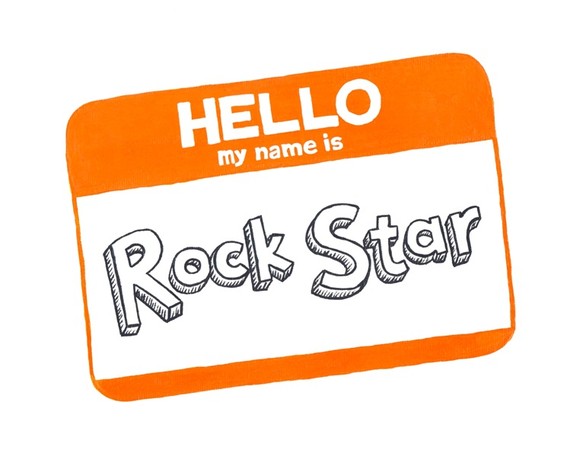Best of 2015: A different view of 'Top' talent, namely that it is mostly a myth
NOTE: As 2015 winds down, so will 'regular' posts on the blog. For the next two weeks, I will be posting what I thought were the most interesting pieces I published in 2015. These were not necessarily the most popular or most shared, just the ones I think were most representative of the year in HR, HR Tech, workplaces, and basketball. Hope you enjoy looking back on the year and as always, thanks for reading in 2015.
Next up a piece from May, titled A different view of 'Top' talent, namely that it is mostly a myth, that challenges our ideas on talent management and chasing 'rock star' employees.
A different view of 'Top' talent, namely that is mostly a myth
Caught this piece, The programming talent myth', over the weekend and if you are in the technology space at all (as a techie yourself, someone who has to attract and recruit tech talent, or simply just someone who is concerned/interested with the 'state' of technology today (particularly when it comes to issues of diversity and inclusion)), then you should carve out 15 or so minutes today or soon and give the piece a read.
It is essentially a summary of a recent keynote speech at a developer's event called PyCon given by Jacob Kaplan-Moss, a well-known contributor to the programming language Django and the director of security at Heroku.
In the speech Kaplan-Ross took square aim at the concept of 'Top' technical talent, (although I would argue his logic would apply to other disciplines as well), and how the dangerous myth of the 'Rock Star' programmer and the terrible programmer (with nothing really in between these extremes), is detrimental on all kinds of levels. It drives people out of technical careers and studies - if you are not a 'Rock Star' you might as well not even bother. It continues to foster and support less-than-healthy norms and lifestyles - 'Rock Star' programmers work 80+ hours a week and don't think of anything other than programming. And finally, it feeds in to what can easily develop into that 'Bro culture' that is common in many smaller startups and tech companies.
Here is a little piece from the talk:
Programmers like to think they work in a field that is logical and analytical, but the truth is that there is no way to even talk about programming ability in a systematic way. When humans don't have any data, they make up stories, but those stories are simplistic and stereotyped. So, we say that people "suck at programming" or that they "rock at programming", without leaving any room for those in between. Everyone is either an amazing programmer or "a worthless use of a seat".
But that would mean that programming skill is somehow distributed on a U-shaped curve. Most people are at one end or the other, which doesn't make much sense. Presumably, people learn throughout their careers, so how would they go from absolutely terrible to wonderful without traversing the middle ground? Since there are only two narratives possible, that is why most people would place him in the "amazing programmer" bucket. He is associated with Django, which makes the crappy programmer label unlikely, so people naturally choose the other.
But, if you could measure programming ability somehow, its curve would look like the normal distribution. Most people are average at most things.
It makes sense if you think of programming as not some mystical endeavor that somehow one is innately born with the talent for or is not. If you see programming and other technical occupations as just ones consisting of a set of skills and capabilities that can be learned over time, (like just about every other skill), then the idea of programming talent and programmers existing on a more normal distribution curve seems the most likely outcome.
One last quote from the piece:
The tech industry is rife with sexism, racism, homophobia, and discrimination. It is a multi-faceted problem, and there isn't a single cause, but the talent myth is part of the problem. In our industry, we recast the talent myth as "the myth of the brilliant asshole", he said. This is the "10x programmer" who is so good at his job that people have to work with him even though his behavior is toxic. In reality, given the normal distribution, it's likely that these people aren't actually exceptional, but even if you grant that they are, how many developers does a 10x programmer have to drive away before it is a wash?
How much does the 'Rock Star' mentality and assumption play in to toxic workplaces, less inclusive workforces, and unfulfilled 'Good, but not a Rock Star' people?
It is a really interesting piece, and Kaplan-Ross' speech is also on YouTube here, and I recommend checking it out.

 Steve
Steve


